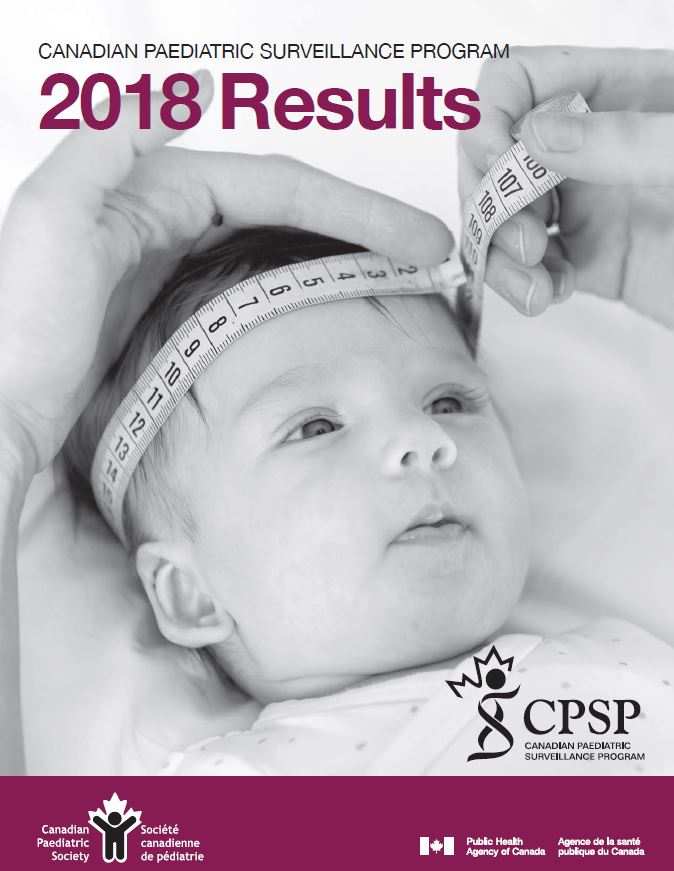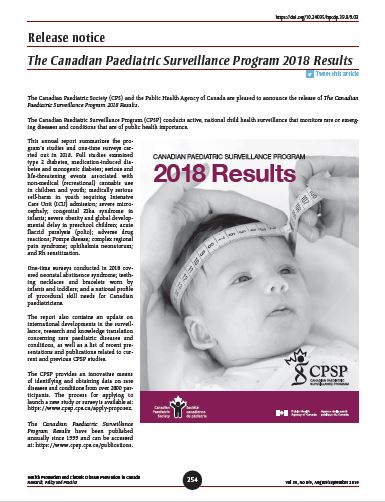Release notice – The Canadian Paediatric Surveillance Program 2018 Results
Health Promotion and Chronic Disease Prevention in Canada
https://doi.org/10.24095/hpcdp.39.8/9.03
The Canadian Paediatric Society (CPS) and the Public Health Agency of Canada are pleased to announce the release of The Canadian Paediatric Surveillance Program 2018 Results (PDF: 883 Kb, 52 pages).
The Canadian Paediatric Surveillance Program (CPSP) conducts active, national child health surveillance that monitors rare or emerging diseases and conditions that are of public health importance.
This annual report summarizes the program’s studies and one-time surveys carried out in 2018. Full studies examined type 2 diabetes, medication-induced diabetes and monogenic diabetes; serious and life-threatening events associated with non-medical (recreational) cannabis use in children and youth; medically serious self-harm in youth requiring Intensive Care Unit (ICU) admission; severe microcephaly; congenital Zika syndrome in infants; severe obesity and global developmental delay in preschool children; acute flaccid paralysis (polio); adverse drug reactions; Pompe disease; complex regional pain syndrome; ophthalmia neonatorum; and Rh sensitization.
One-time surveys conducted in 2018 covered neonatal abstinence syndrome; teething necklaces and bracelets worn by infants and toddlers; and a national profile of procedural skill needs for Canadian paediatricians.
The report also contains an update on international developments in the surveillance, research and knowledge translation concerning rare paediatric diseases and conditions, as well as a list of recent presentations and publications related to current and previous CPSP studies.
The CPSP provides an innovative means of identifying and obtaining data on rare diseases and conditions from over 2800 participants. Here is the process for applying to launch a new study or survey.
The Canadian Paediatric Surveillance Program Results have been published annually since 1999.

